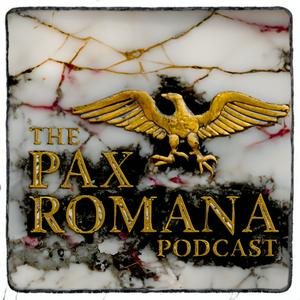Disease shaped population levels, military strength and the stability of imperial institutions in the Roman Empire. Smallpox, a highly lethal viral disease known from the early modern period and eradicated only in the twentieth century, has long been assumed to have been part of that ancient disease environment. A recent-ish article in the Journal of Roman Studies challenges that assumption, showing that there is no firm evidence that the classical form of smallpox existed in the Roman world. This article helped shape my own thinking in my book, Pox Romana, and I'm thrilled to take the time to explain the article's argument and why it matters for Roman history.
Read Newfield et al. (2022), 'Smallpox's Antiquity in Doubt'
Donate: https://www.paypal.com/ncp/payment/WZTWCMWCJJYFC
YouTube Channel:
https://www.youtube.com/@ProfCPE
Buy Professor Elliott's book:
Pox Romana: The Plague that Shook the Roman World.


